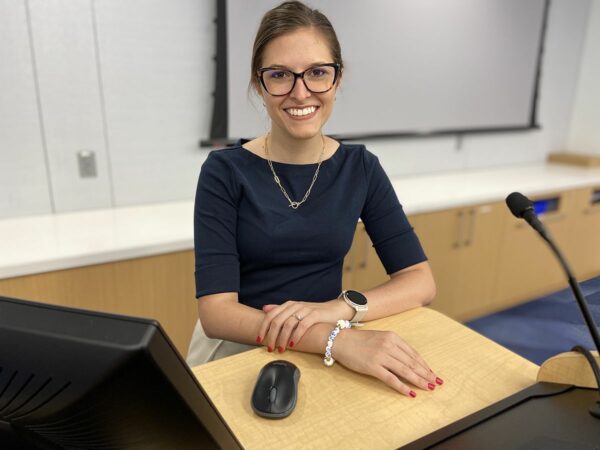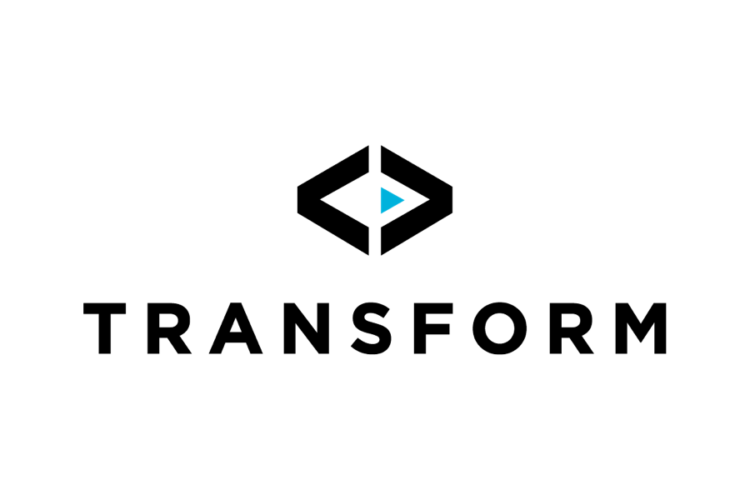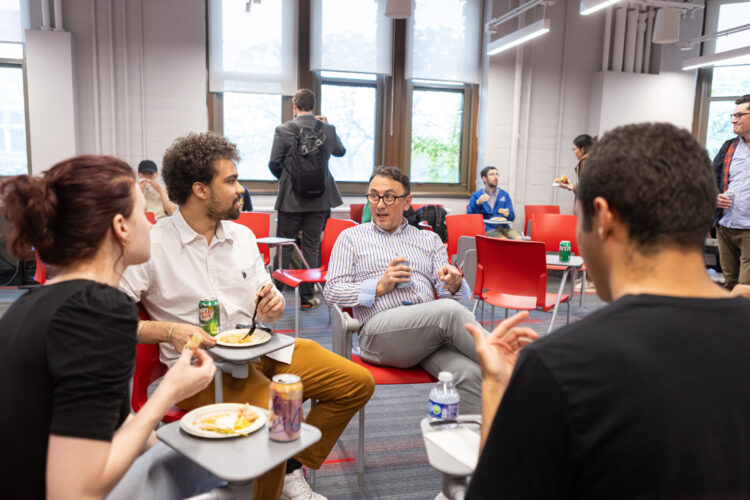Unique data science partnership with City Colleges of Chicago offers rising professors, and their students, a more inclusive learning experience

Amanda Kube Jotte says participating in the University of Chicago and City Colleges of Chicago Data Science Preceptorship Program has made her a better teacher in countless ways. The joint program’s unique structure that places recent Ph.D. graduates like her in teaching roles at both UChicago and City Colleges helped her develop newfound confidence in the classroom and learn the most effective ways to make data science resonate with a diverse swath of students. It’s only fitting, she says, as the emerging field of data science—and the burgeoning data science ecosystem UChicago and other institutions are helping to build in the region—relies on incorporating as many voices as possible.
“Data science is meant to be very collaborative,” Kube Jotte, who taught data science courses at both UChicago and City Colleges’ Harry S. Truman College and will be starting a full-time role as an instructional professor at UChicago this fall, said. “Having more perspectives is extremely useful in a field where what you are doing is meant to then be applied. When you are working on something that’s going to be implemented on the South Side of Chicago, for instance, it’s important to have people who understand the South Side, who live there, giving input, because they’re the ones who are going to know exactly what is needed in their community.”
Instead of a traditional post-doc experience that focuses on research, preceptors spend the majority of their time focused on developing as teachers. While a few other universities have teaching-focused preceptor programs, UChicago and City Colleges’ dual-placement structure is unique. The design came about in part as a way to leverage UChicago’s data science resources to help City Colleges build out their own data science curriculum while also offering the preceptors, and in turn their students, a more enriching learning experience. So far, five preceptors have participated across four City Colleges’ campuses with three new participants lined up for the coming year.
A broader STEM commitment
The Preceptorship Program began in 2022 as part of a Memorandum of Understanding (MOU) between the University and City Colleges. The partnership aims to strengthen STEM education and career opportunities and create a more diverse field of professionals entering the sciences.
“The MOU with the University of Chicago establishes a robust and flexible framework for partnerships, such as our collaboration with the Data Science Institute,” said Mark Potter, Provost and Chief Academic Officer at City Colleges of Chicago. “This agreement facilitates navigation through both institutions’ systems, fostering innovative initiatives that drive growth and excellence. It opens doors for collaborative efforts, ensuring that both institutions benefit from shared expertise and resources, paving the way for advancements in education and research.”
At UChicago, the program also advances the Inclusive Innovation Initiative, a joint effort between UChicago, the University of Illinois Urbana-Champaign, Argonne National Laboratory, and Fermilab National Accelerator Laboratory that is engaging local students, educators, and workers and connecting them to that growing scientific ecosystem in Chicago, making it more reflective of the city itself and spurring economic growth on the historically under-resourced South Side.
Building collaborative capacity
Because data science as a field is still in its early stages, finding qualified instructors can be difficult, particularly at a community college.
“For City Colleges, and community colleges in general, what makes this partnership really exciting is as community colleges are staying at the forefront especially in the STEM industries that are changing really fast, finding capacity to build programs and teach in those programs takes a lot of time, so when you have a partner like UChicago who has the capacity to partner with us and who’s in all the conversations in those industries, it helps us build and innovate in a way that often is really hard to do,” City Colleges professor Kate Connor said.
The set-up—which also includes crossovers like UChicago reserving slots for City Colleges students in their summer programs—has proven to be so novel several other institutions have approached UChicago and City Colleges about how they can replicate it on their own campuses.
Shaping new approaches to teaching
At UChicago, preceptors work closely with faculty mentors, attend workshops with the University’s Center for Teaching and Learning, and support a variety of summer clinics and programs. At City Colleges, program participants are enrolled in a customized two-year version of the institution’s professional development sequence for tenure-track faculty that includes syllabus and assessment design, classroom observations, and an overall honing of their personal teaching philosophy. Preparing to teach students coming from a variety of backgrounds and experience levels makes up a significant element of the training as well.
“When we started the Data Science Institute in 2021, our goal wasn’t just to help UChicago students. You’re building a new field and the more inclusive you make the foundations, the better it’s going to be,” said David Uminsky, Executive Director of UChicago’s Data Science Institute. “The Preceptor Program has been a collaborative and mutually beneficial partnership from the start. With faculty mentorship at both City Colleges and UChicago and specialized training from City Colleges, preceptors are learning inclusive best practices, gaining an understanding of student support services, and developing a reflective practice for teaching.”
“It’s extremely valuable to experience a different student population. We have a really fascinating mix of students from all over the world. We have CPS grads, we have older students, and parents, and lots of students who come here to save money before they transfer to a four-year school, and I think some of the teaching methods that we tend to rely on as faculty members when dealing with fairly elite groups of students aren’t as effective when you have such diversity in the classroom,” Truman College Professor Anne Close, who leads the modified tenure-track program, said. “We encourage our faculty to think more as collaborators in learning instead of just experts who are imparting their knowledge to students who are ideally prepared to receive it.”
Preceptor Bill Trok, who just completed his first year in the program, says he found thinking deeply about things like syllabus design and different student needs in the City Colleges’ professional development sequence to be especially valuable. Trok has also been the only preceptor so far who has taught at Chicago State University in South Shore in addition to his courses at UChicago and City Colleges as UChicago looks to further expand the program’s impact and reach. Trok found his students represented a wide spectrum—from UChicago students who lived on campus and were solely focused on their studies to City College students who were new to the material to a 67-year-old Chicago State grandmother who’d returned to school to finish her degree.
“It makes you a better teacher in so many ways,” he says.
Scaling impact
Beyond partnering with additional institutions like Chicago State, program leaders at both UChicago and City Colleges look forward to the growing preceptor program being more widely seen as a case study for the intersectional impact this type of collaboration can continue to create.
“The magic of this program has been that everybody has benefitted,” City Colleges’ Connor says. “There has been a lot of mutual respect and collaboration and honoring that there’s a lot of knowledge we all bring to the table that has been really exciting to be a part of.”
This story was republished from University of Chicago’s Office of Civic Engagement

Startups Are Bringing a ‘Fresh Perspective’ to Clinical Trials
Master’s in Applied Data Science Winter 2024 Capstone Winners

DSI celebrates the best of 2023-2024’s data science clinic projects, and graduating data science undergraduate students
